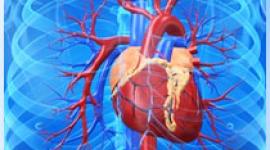For Teens: Let's Talk About Depression
Sure, everybody feels sad or blue now and then. But if you're sad most of the time, and it's giving you problems with:
- your grades or attendance at school
- your relationships with your family and friends
- alcohol, drugs, or sex
- controlling your behavior in other ways
The problem may be DEPRESSION.
 The good news is that you can get treatment for depression and feel better soon. Approximately 4% of adolescents get seriously depressed each year. Clinical depression is a serious illness that can affect anybody, including teenagers. It can affect your thoughts, feelings, behavior, and overall health.
The good news is that you can get treatment for depression and feel better soon. Approximately 4% of adolescents get seriously depressed each year. Clinical depression is a serious illness that can affect anybody, including teenagers. It can affect your thoughts, feelings, behavior, and overall health.
Most people with depression can be helped with treatment. But a majority of depressed people never get the help they need. And, when depression isn't treated, it can get worse, last longer, and prevent you from getting the most out of this important time in your life.
So....Listen Up:
Here's how to tell if you or a friend might be depressed.
First, there are two kinds of depressive illness: the sad kind, called major depression, and manic-depression or bipolar disorder, when feeling down and depressed alternates with being speeded-up and sometimes reckless.
You should get evaluated by a professional if you've had five or more of the following symptoms for more than two weeks or if any of these symptoms cause such a big change that you can't keep up your usual routine.....
When You're Depressed...
- You feel sad or cry a lot and it doesn't go away.
- You feel guilty for no reason; you feel like you're no good; you've lost your confidence.
- Life seems meaningless or like nothing good is ever going to happen again. You have a negative attitude a lot of the time, or it seems like you have no feelings.
- You don't feel like doing a lot of the things you used to like - like music, sports, being with friends, going out - and you want to be left alone most of the time.
- It's hard to make up your mind. You forget lots of things, and it's hard to concentrate.
- You get irritated often. Little things make you lose your temper; you over-react.
- Your sleep pattern changes; you start sleeping a lot more or you have trouble falling asleep at night. Or you wake up really early most mornings and can't get back to sleep.
- Your eating pattern changes; you've lost your appetite or you eat a lot more.
- You feel restless and tired most of the time.
- You think about death, or feel like you're dying, or have thoughts about committing suicide.
When You're Manic...
- You feel high as a kite...like you're "on top of the world."
- You get unreal ideas about the great things you can do...things that you really can't do.
- Thoughts go racing through your head, you jump from one subject to another, and you talk a lot.
- You're a non-stop party, constantly running around.
- You do too many wild or risky things: with driving, with spending money, with sex, etc.
- You're so "up" that you don't need much sleep.
- You're rebellious or irritable and can't get along at home or school, or with your friends.
Talk to Someone
- If you are concerned about depression in yourself or a friend, TALK TO SOMEONE about it. There are people who can help you get treatment:
- a professional at a mental health center or Mental Health Association
- a trusted family member
- your family doctor
- your clergy
- a school counselor or nurse
- a social worker
- a responsible adult
Or, if you don't know where to turn, the telephone directory or information operator should have phone numbers for a local hotline or mental health services or referrals.
Depression can affect people of any age, race, ethnic or economic group.
Let's Get Serious Here
Having depression doesn't mean that a person is weak, or a failure, or isn't really trying...it means they need treatment for depression.
Most people with depression can be helped with psychotherapy, medicine, or both together.
Short-term psychotherapy, means talking about feelings with a trained professional who can help you change the relationships, thoughts, or behaviors that contribute to depression.
Medication has been developed that effectively treats depression that is severe or disabling. Antidepressant medications are not "uppers" and are not addictive. Sometimes, several types may have to be tried before you and your doctor find the one that works best.
Treatment can help most depressed people start to feel better in just a few weeks.
So remember, when your problems seem too big and you're feeling low for too long, YOU ARE NOT ALONE. There's help out there and you can ask for help. And if you know someone who you think is depressed, you can help: Listen and encourage your friend to ask a parent or responsible adult about treatment. If your friend doesn't ask for help soon, talk to an adult you trust and respect -- especially if your friend mentions suicide.
What You Need to Know About Suicide...
Most people who are depressed do not commit suicide. But depression increases the risk for suicide or suicide attempts. It is not true that people who talk about suicide do not attempt it. Suicidal thoughts, remarks, or attempts are ALWAYS SERIOUS...if any of these happen to you or a friend, you must tell a responsible adult IMMEDIATELY...it's better to be safe than sorry....
Why Do People Get Depressed?
Sometimes people get seriously depressed after something like a divorce in the family, major financial problems, someone you love dying, a messed up home life, or breaking up with a boyfriend or girlfriend.
Other times - like with other illnesses - depression just happens. Often teenagers react to the pain of depression by getting into trouble: trouble with alcohol, drugs, or sex; trouble with school or bad grades; problems with family or friends. This is another reason why it's important to get treatment for depression before it leads to other trouble.
Depression and Alcohol and Other Drugs
A lot of depressed people, especially teenagers, also have problems with alcohol or other drugs. (Alcohol is a drug, too.) Sometimes the depression comes first and people try drugs as a way to escape it. (In the long run, drugs or alcohol just make things worse!) Other times, the alcohol or other drug use comes first, and depression is caused by:
- the drug itself, or
- withdrawal from it, or
- the problems that substance use causes.
And sometimes you can't tell which came first...the important point is that when you have both of these problems, the sooner you get treatment, the better. Either problem can make the other worse and lead to bigger trouble, like addiction or flunking school. You need to be honest about both problems -- first with yourself and then with someone who can help you get into treatment...it's the only way to really get better and stay better.
Depression is a real medical illness and it's treatable.
Be Able to Tell Fact From Fiction
Myths about depression often prevent people from doing the right thing. Some common myths are:
Myth: It's normal for teenagers to be moody; teens dont suffer from real depression.
FACT: Depression is more than just being moody, and it can affect people at any age, including teenagers.
Myth: Telling an adult that a friend might be depressed is betraying a trust. If someone wants help, he or she will get it.
FACT: Depression, which saps energy and self-esteem, interferes with a person's ability or wish to get help. It is an act of true friendship to share your concerns with an adult who can help.
Myth: Talking about depression only makes it worse.
FACT: Talking through feelings with a good friend is often a helpful first step. Friendship, concern, and support can provide the encouragement to talk to a parent or other trusted adult about getting evaluated for depression.
next: Depression in Elderly
~ depression library articles
~ all articles on depression
APA Reference
Staff, H.
(2009, January 1). For Teens: Let's Talk About Depression, HealthyPlace. Retrieved
on 2026, January 14 from https://www.healthyplace.com/depression/articles/for-teens-lets-talk-about-depression



